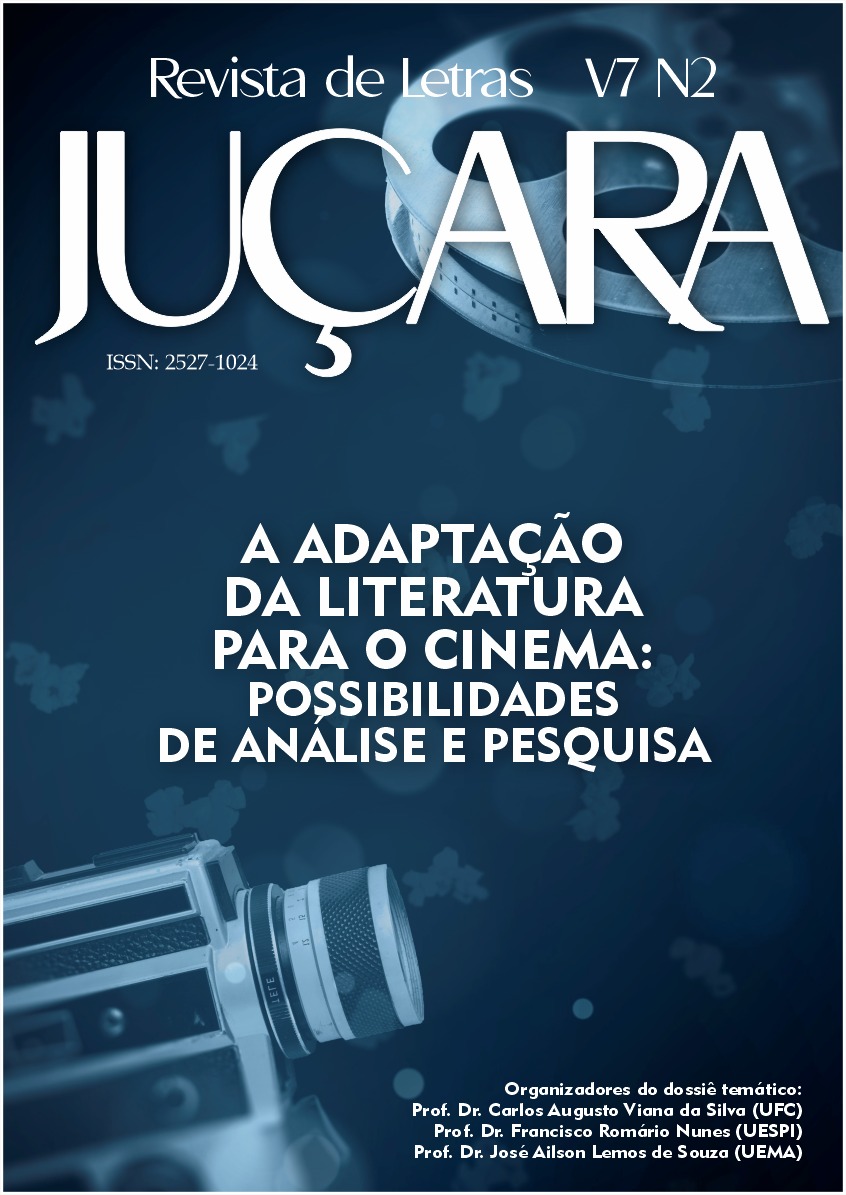FROM LITERATURE TO CINEMA: AN INTERMEDIAL MODEL FOR THE ANALYSIS OF BOOK-TO-MOVIE “ADAPTATION”
DOI:
https://doi.org/10.18817/rlj.v7i2.3401Abstract
With the purpose of emphasizing the relevance of Intermediality Studies in assessing cinematic adaptations of literary works and promoting an appreciation of the various media involved in this process, this research seeks to introduce an analytical model based on the stages outlined by Bruhn et al. (2022), within the framework established by Elleström (2021) for this theoretical perspective. In other words, this article aims to propose criteria to be considered when comparing a book and its adaptation, avoiding a merely superficial evaluation based on personal taste. To achieve this goal, we first provide a brief overview of Intermediality Studies and the foundations laid out by Elleström (2021). Next, we outline the criteria supporting the categorization of cinema and literature as qualified media. Finally, we propose a systematic framework for intermedial analysis, utilizing the five steps listed by Bruhn et al. (2022). As a practical example, we delve into the transmediation of Philip K. Dick's novel Do Androids Dream of Electric Sheep? (1968) into the film "Blade Runner" (1982), directed by Ridley Scott, offering reflections on the relationships between the media involved in the book-to-movie adaptation.
Downloads
Published
How to Cite
Issue
Section
License
Copyright (c) 2023 Jaimeson Machado Garcia, Cristiane Lindemann , José Arlei Cardoso

This work is licensed under a Creative Commons Attribution 4.0 International License.
A submissão de originais para a Revista de Letras Juçara implica na transferência, pelos autores, dos direitos de publicação. Os direitos autorais para os artigos publicados nesta revista são do autor, com direitos da revista sobre a primeira publicação. Os autores somente poderão utilizar os mesmos resultados em outras publicações indicando claramente a Revista de Letras Juçara como o meio da publicação original.


